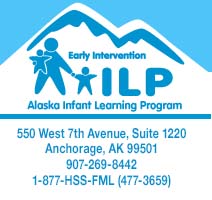
Safety Checklist: 6 Months - 1 Year
The types of injuries that occur in this age group are related mostly to the environment of the child. Since an infant starts with very limited mobility and then becomes a mobile child, many injuries occur when new developmental stages such as rolling, crawling, or walking begin.
Also, if a home is not child proofed, many children will sustain an injury due to unprotected household appliances, furniture, outlets, faucets, blinds, and many other common areas. It is important to get to the height level of the child and go around the house checking for any potentially dangerous areas.
Helpful hints for this age group include:
- All medicines and poisonous substances should be locked and out of reach of children;
- All small objects, plastic bags and balloons, which can cause choking, should be inaccessible;
- All sharp objects such as knives or scissors should be inaccessible;
- All electrical outlets should be covered;
- Syrup of Ipecac, which promotes vomiting, should be available as well as a number of your local poison control center;
- Babies should be supervised near all pools, tubs or high places. Drowning can occur even in a bucket of water or toilet bowl;
- A baby can pull all dangling electric cords, blinds or tablecloths. These should be placed in such a position as to avoid this from happening;
- All furniture such as dressers or chests of drawers should be securely latched to the wall to prevent being pulled on top of a child. Many children will pull out drawers and try to climb on a chest of drawers only to have it tip over and fall on them;
- All curling irons, irons, hot liquids and other objects should be unreachable;
- Sunscreen of at least 15 SPF should be used for outdoor activities;
- Insect repellent containing up to 10% DEET should be used in places where insects are prevalent. Children should be checked for tick attachments if they live in an area of tick settlements;
- Car seats should be used for all car trips and the car seat should be in the back seat facing backwards until at least one year of age and twenty pounds. Parents should always use a seat belt. The Auto Safety Hotline number is 1-888-327-4236;
- Infant walkers should never be used since many children sustain serious injuries with these. These infant walkers also inhibit normal walking;
- Extension cords should have electric tape wrapped around the junctions;
- Parents should know CPR (Cardiopulmonary resuscitation). Call the American Heart Association at 1-800-242-8721 for information;
- Safety gates should be placed at the top and bottom of all staircases;
- Windows should be closed and locked or guarded. Screens are not enough to prevent a child from falling through a window;
- Guns should be safely stored and locked;
- The hot water heater of the house should be 120 degrees Fahrenheit (50.0 degrees Celsius) to prevent accidental scalding;
- All cooking pots and pans should be on the back burner with the handles facing the back;
- Do not store poisons in drinking bottles, glasses or jars;
- Outdoor play should be closely monitored;
- All pools or hot tubs should have fences on all four side;
- Children should not be placed on a bicycle;
- Store toys in a chest without a dropping lid to avoid harming the fingers;
- All houses should have a smoke detector, fire extinguisher and fire escape plan;
- Contact with pets should be closely monitored;
- Install only garage door openers with sensors so they will not close on a child;
- All baby sitters should be at least 13 years of age, mature enough to handle emergencies, and known and trusted by the parents;
- All of these safety precautions should be present in any home, daycare, preschool, mother's day out, friend or family location.
